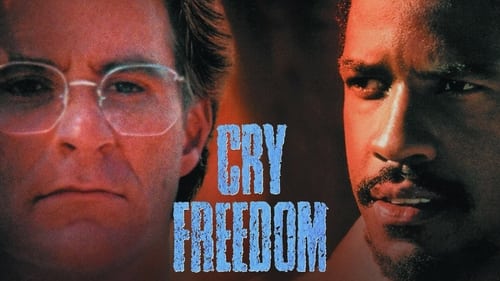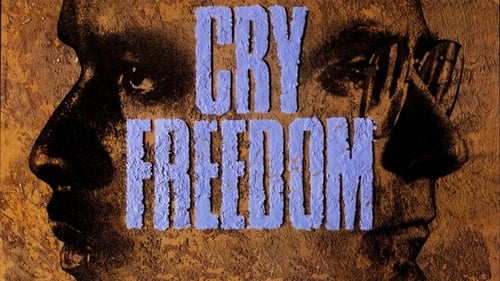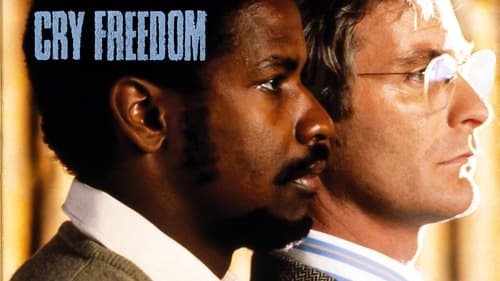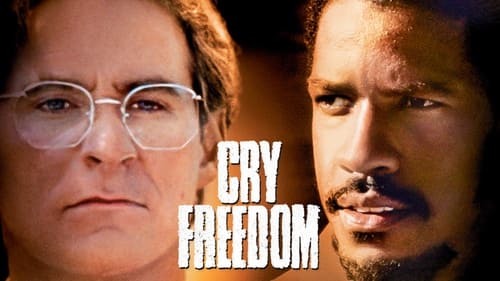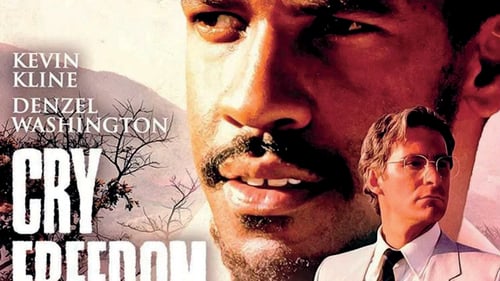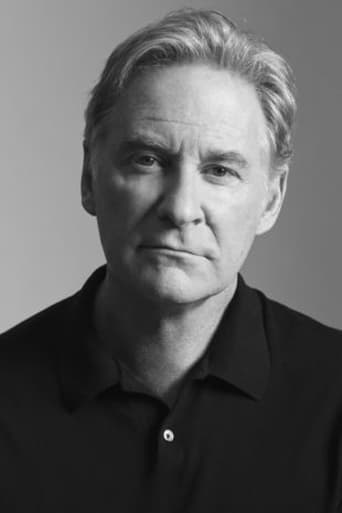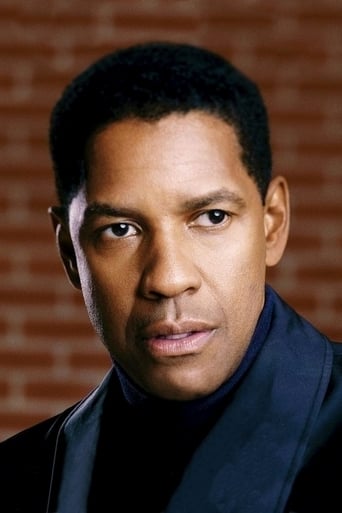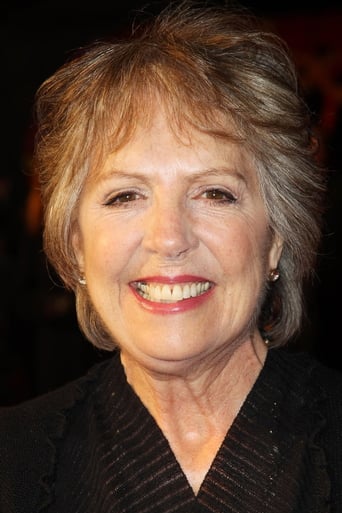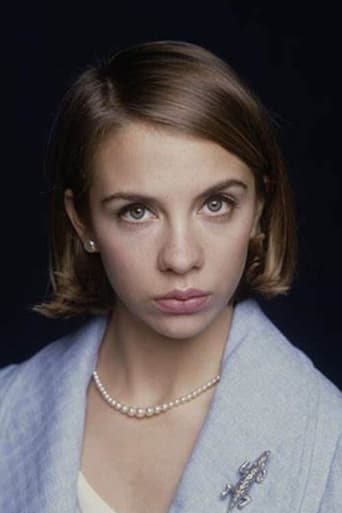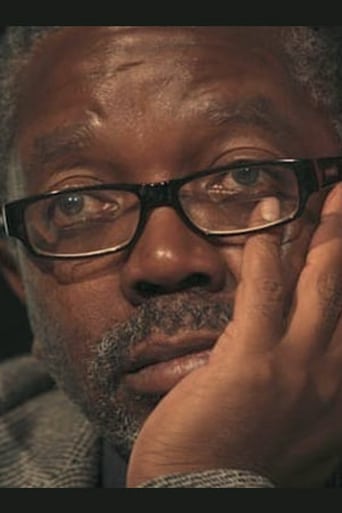Flyerplesys
Perfectly adorable
Rijndri
Load of rubbish!!
WillSushyMedia
This movie was so-so. It had it's moments, but wasn't the greatest.
Ava-Grace Willis
Story: It's very simple but honestly that is fine.
MartinHafer
When this film appeared in 1987, it was considered very liberal and enlightened. However, when seen today, I could easily see someone criticizing the film for being paternalistic--and the same could be said for films like "A Dry White Season" and even the recent "Bang Bang Club" (made in South Africa itself only two years ago). After all, when Hollywood did a film about the apartheid era, it seemed to always feature a white guy in the lead and in the films, whites seemed to need to help rescue the poor, oppressed blacks--and even "Bang Bang Club" to a degree. While the stories ARE true, framing the stories these ways is a bit sad and I would love to see films that were about the black leaders in the fight for freedom. Despite this legitimate complaint, the film should not be written off, as it's an important and true story. And, for that matter, it's quite compelling.The film begins with Steven Biko (Denzel Washington) approaching the liberal white reporter, Donald Woods (Kevin Klein). While Woods thinks he's enlightened, he is a supporter of the white regime and is blind to some of the evils of apartheid. Over time, Biko is able to win over Woods--and Woods is introduced to black society within the township of Soweto. Later, after incurring the wrath of the white government, Biko is arrested and beaten to death. However, the death was written off as just some accident and Woods is determined to get out of the country and expose the brutality of the South African regime. The problem is, they are not about to just let him leave. So, Woods and his family come up with a very daring plan--a plan that takes half the film. As a sort of epilogue, the film ends with the bloody police attack on student protests in 1977--ending with over 700 children being shot to death. The ending is very fitting and quite moving.In general, I like the film. I cannot comment, however, on the accents done by Klein and Washington--I am an American who isn't attuned to such things. But, the acting is good, the film VERY compelling and it leaves you feeling raw at the end. My only complaint (other than paternalism) is the odd device of having Biko's character seeming to come to life during the film in flashback scenes or to dialog with Woods--even though he was 100% dead. Odd, that's for sure.By the way, if you are a geek (and I guess this means I am), look for Nick Tate near the very end playing a pilot. He also played a pilot on "Space: 1999"--and was a regular on the series in case his face is familiar to you.
Christian_Dimartino
Kevin Kline and Denzel Washington star in Richard Attenborough's disappointing Cry freedom. Attenborough is usually good when it comes to biographies. I mean this is the genius behind Gandhi and Chaplain. But there is something wrong with Cry freedom: It's a little too shallow.I know they're just trying to tell a story, but the story isn't told very well.The film takes place around the time of apartheid,which everyone should know about. Denzel Washington plays Steve Biko,a man who is standing up for apartheid. Within an hour of the film, he is taken to jail and is murdered. But nobody knows that he was murdered. They are told it's a disease. But somebody knows.That somebody is a journalist named Donald Woods(played terrifically by Kevin Kline). He knows what actually happens,and he wants the world to know. But that doesn't go down well. People try to terrorize him and his family. The acting is good. Especially from Kevin Kline. and I realize that Attenborough is just trying to tell a story. But the way it's told is kind of hollow. Also, I found the film a bit annoying. For one main reason: Towards the end, you just predict that something bad is going to happen. And something tragic happens about every five minutes.I was disappointed. Another flaw: I realize that Gandhi was 3 hours long,but I still loved that movie. Cry freedom isn't three hours,and it's not as good. It actually felt too long. Overall, i'm giving it a thumbs down.Cry freedom: C+
kellyo73
I think the context of the story has been covered by other posters so I would just like to write about the impact this film had on me.I first saw this film the year of it's release around 1987. My school organised a trip to the cinema to see it, for an RE project I think. We all went along of course excited because we were on a school trip to the cinema! Little did we know what we were about to experience. To this day I still remember the feelings it invoked in me and i remembered crying a lot as were most of my friends. I think at the age we were we found it shocking and quiet rightly outraged in our own youthful way .It had such an impact on me that I joined the Anti Apartheid Movement the same year.I think it served it's purpose in my case.
Dr Jacques COULARDEAU
A long film about a very important character from South Africa, Stephen Biko. He is one of these Blacks who did not survive apartheid, who actually died a long time before their normal time. The already old film though does not show how important Biko was, what he really represented. His life and his teaching is reduced to little, at best a few witty remarks. The film being from 1987, the objective was to push South Africa over the brink that would lead her to liberation. So the film aims at showing how irrational the South African supporters of apartheid are, in 1987. To show this the film has to look beyond Biko's death, hence to center its discourse not on Biko but on a white liberal journalist and his escaping the absurd system in which he is living. His escape is made necessary because of the victimization he is the victim of, along with his family, and because he wants to publish the first book on Biko, after his death, and that can only happen in England. The film shows a way to escape South Africa, while apartheid is still standing and killing. So do not expect this way to be realistic and true. It could not be. But the film has tremendously aged because it does not show South Africa with any historical distantiation, the very distantiation that has taken place under Nelson Mandela's presidency and that is called forgiveness provided those who want to be forgiven speak up and out. The film is strong and emotional but that very historical limit makes it rather weak today, especially since the film does not mention the third racial community, the Indians. Panegyric books or films all have that defect: they are looking at the person they are supposed to portrait from only one point of view. That explains why the film has aged so much, seems to be coming from so long ago, as if nothing had changed at all. A remake is necessary.Dr Jacques COULARDEAU, University Paris 1 Pantheon Sorbonne, University Versailles Saint Quentin en Yvelines, CEGID



